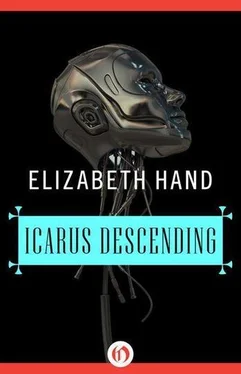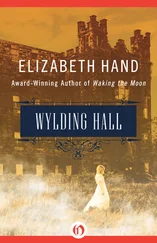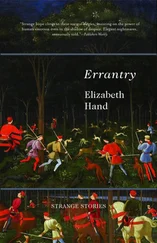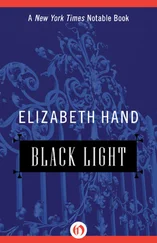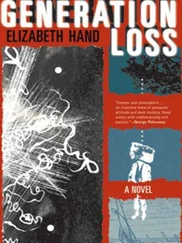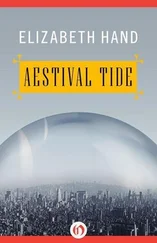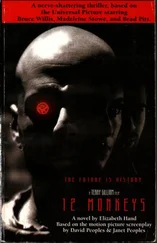“Of course, sister,” Cumingia said at last. Her long fingers closed around the recorder, as tiny in her hands as a betel-nut from the station’s foodstores. “I will tell my sisters that it is as you say. An anomaly; nothing more.”
“A ghost,” I said more gently, smiling as I reached to touch my sister’s shaven skull. “And we are not human, sister. We have nothing to fear from their ghosts.”
She nodded and left me alone with my work. A little later, of course, I was to learn how wrong I had been. Icarus was more powerful than ever I could have imagined. And ghosts—the dead and the living dead who populate the world of our Ascendant Masters—they are to be feared as well.
She remembered what he said to her moments before the anesthesia took effect.
“ Will it hurt, Daddy?”
She lay on a table of glass and emerald-green metal, her head shaved of its dark corkscrew curls, her coffee-colored skin perhaps a shade paler than it had been. She was fifteen years old, the only daughter of the Ascendants’ most renowned scientist, the geneticist Luther Ames Burdock. Her name was Cybele.
“It won’t hurt, darling.” Her father bent over her, his hands warm as they cradled her head, checking the filigree of wires and neural webs that covered her face and throat. “Of course it won’t hurt.”
She believed him; she had seen this procedure performed a hundred times. First on mice and rats, then dogs, then ibex and jaguars and other animals that had been saved from extinction by the Ascendants’ passion for science, for coaxing new and strange things from nature as a man might wheedle them from a reluctant mistress. And indeed none of the animals had ever seemed to be in pain, and none of it was really very frightening, not once you got used to it. There were other things that went on in her father’s work space that she was not permitted to watch. Men and women sedated and enclosed in plasteel stretchers, hurried through the doors by her father’s staff; children, too, some of them much younger than Cybele, a pale arm or leg hanging limp where it had escaped from the stretcher’s bonds. She never saw any of them again, although she tried to guess sometimes what they had become.
Because her father’s house was like an ark, filled with all the strange creatures he had brought into being. He loved to think of it as such: the vast glass-and-steel mountain compound, with its roofs that swept up like wings and the high arched main entrance, like the prow of a Viking ship.
“My ark,” he would laugh, Cybele walking beside him as he raised his arms as though to embrace the entire marvelous structure. “My ark and all my children!” And he would turn to kiss his daughter, at fifteen still slight, and as hesitant in her speech as a child.
His children: that was what he called them, all of them: Cybele and the others who populated Luther Burdock’s compound in the Blue Ridge Mountains. The things he called aardmen: tall and immensely strong, they stood upright and had long sinewy arms and legs covered with short bristly fur. Their faces betrayed their canine origins, with blunt angry muzzles and sorrowing dark eyes; their faces and the vestigial tails that switched anxiously when they were frightened or excited. The aardmen were easy to live with, servile and fawning as they brought Cybele her breakfast or carried her to the waiting transport when it was time to accompany her father on one of his visits to the Prime Ascendancy in Wichita.
Others of the geneslaves were more disturbing. Like the hydrapithecenes in their crowded tanks, with the flat faces and narrow almond-shaped eyes they inherited from the Archipelagian prisoners who were their human progenitors. Or the argalæ, the bird-faced women whose sighs and restless hands shamed Cybele, because she knew her father had engineered them as sexslaves for the HORUS colonies. And there were countless others—tiny birds like wrens, but with human faces that wept and human voices that cried piteously for release. The dwarfish salamanders, eyeless men with moist, autumn-colored skin, designed to toil in the heat and darkness of the L-5 mineral mines. The equinas with their horse faces and human eyes. The huge, slow, but immensely strong starboks, like ponderous bulls, that could speak in deep, sonorous voices. They drank little and ate not at all, because they lived for only a few weeks, just long enough to haul their burdens across the pentecostal deserts of the western part of the continent.
These, then, were Cybele’s world-mates—her family, as it were. Her father raised her by himself—hers had been a glass birth—and except for the rare excursions to various Ascendant sites (and one to HORUS), she never left the compound. She trusted her father as each morning she trusted the sun to rise above the hazy bulk of the Blue Ridge. And so, when he told her that he would be performing an operation upon her, she was not afraid, even though she had heard how others screamed before the sedatives took effect.
“It’s very simple, really,” he had soothed her as he carefully clipped her hair, preserving some of it in glass vials for further work. “And this way, darling, we will always be together, somewhere.”
“We won’t die?” Her fifteen years in that near-solitude had left her oddly childlike; and so she had a child’s odd blend of fearlessness and terror when it came to death.
“We will die,” her father said in his soft voice, “but then we will be regenerated, because of that —”
He inclined his head to the wall opposite their seat, where vials and globes and steel chambers contained the essence of himself, culled through several years of painstaking operations.
“And it won’t hurt,” the girl said knowingly.
“Do not fear the dark, my darling. It may hurt, but we won’t remember. Only this, darling—you’ll remember only this—” And he stroked her bare head tenderly, tilting his own so that she wouldn’t see the tears in his eyes.
In the end it did hurt, for Luther Burdock, at least. The next Ascension, while brief, lasted long enough for its fundamentalist leaders to attempt to destroy all remnants of the flourishing bioengineering industry. Luther Burdock was executed, but only after the geneticist was tortured and forced to watch his daughter’s death, over and over and over again, as Cybele and all her cloned twins were murdered.
This short-lived Ascendancy knew nothing of the subtleties of science. While meticulous in their murder of the geneticist and his cloned children, they failed to dismantle his laboratories. They did not even approach the compound in the mountains, where Dr. Burdock himself hid within twisted strands of DNA and several frozen canisters stored in a bomb shelter. And they could not destroy all the geneslaves already loosed upon the world; they could not even hope to begin to do so.
But there were too many industries already dependent upon Luther Burdock’s biotechnology. After a few brief skirmishes, the members of this Ascension met their own unhappy fates in chambers they had designed for others. Their successors found in Dr. Burdock’s laboratories an elaborate and detailed series of holograms explaining his work. They also found a vial of tissue and neurological fluid labeled KALAMAT 98745: the miracle, the clonal replica of his beloved only child.
These Ascendants were neither fearful nor hesitant when it came to matters of science. Kalamat they explored, refined, developed as though she were a new and fertile country—as indeed she was, in a way—and while she never forgot her father, it is doubtful if ever he would have recognized her in the thing that she became.
It was this same sister, the one we call Cumingia, who first told me of the plague, several months before I saw the image of Icarus flickering in the air of the nav chamber.
Читать дальше
